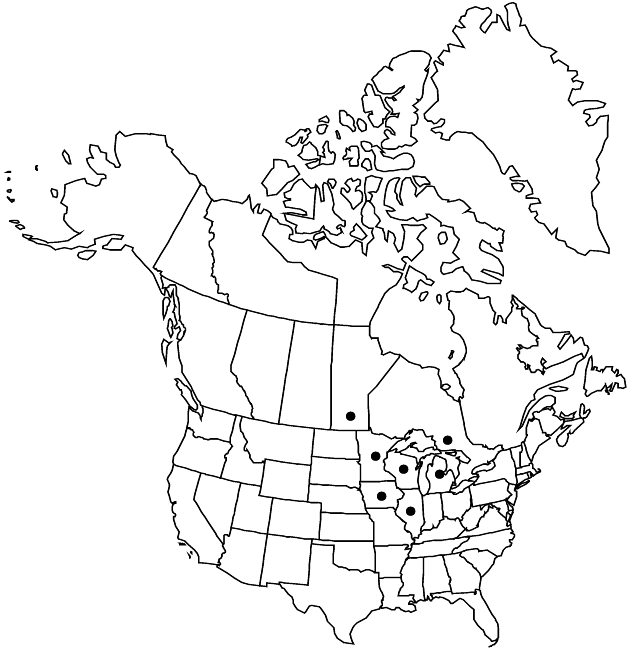Difference between revisions of "Symphyotrichum lanceolatum var. hirsuticaule"
Phytologia 77: 284. 1995.
imported>Volume Importer |
imported>Volume Importer |
||
| Line 56: | Line 56: | ||
|publication year=1995 | |publication year=1995 | ||
|special status=Endemic | |special status=Endemic | ||
| − | |source xml=https:// | + | |source xml=https://bitbucket.org/aafc-mbb/fna-data-curation/src/2e0870ddd59836b60bcf96646a41e87ea5a5943a/coarse_grained_fna_xml/V19-20-21/V20_1157.xml |
|tribe=Asteraceae tribe Astereae | |tribe=Asteraceae tribe Astereae | ||
|genus=Symphyotrichum | |genus=Symphyotrichum | ||
Latest revision as of 19:59, 5 November 2020
Stems stout, evenly, moderately to densely short-woolly. Leaf blades usually linear-lanceolate, distal margins entire. Heads 5–200+, not congested on lateral branches of arrays, not subtended by large foliaceous bracts. Involucres 3.6–4.7 mm. Phyllaries: outer 2–3.5 × 0.4–0.6 mm, inner 3.4–4.3 × 0.3–0.5 mm, outer 1/3–2/3 length of inner. Ray florets 20–40; corollas usually white, sometimes pink or pale blue, laminae 4.2–5.8 mm. Disc florets 16–27; corollas 3.5–4.6 mm, limbs 2–2.8, lobes 0.6–0.9. Cypselae 0.7–1.1; pappi 3.4–5.2 mm. 2n = 32.
Phenology: Flowering Jul–Oct.
Habitat: Mucky soils on glacial deposits
Elevation: 100–300+ m
Distribution

Man., Ont., Ill., Iowa, Mich., Minn., Wis.
Discussion
Variety hirsuticaule is encountered mainly in mucky soils in upland glacial deposits of southern Ontario, in the eastern and western Lake Superior areas at the northern limit of the deciduous forest, west to southeastern Manitoba, northern Illinois and Michigan. Plants tend to bloom slightly earlier than do those of other varieties in the area and often the stems are stouter.
Selected References
None.